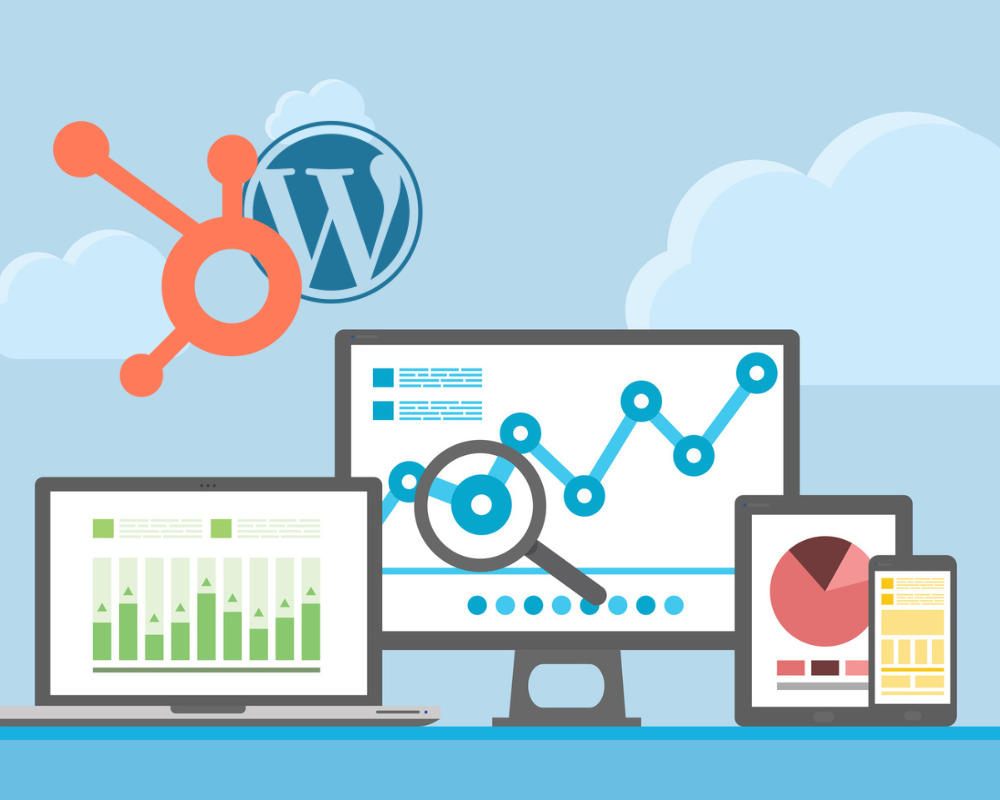HubSpot vs WordPress: Which is Better for SEO?

In the battle of website CMS giants — HubSpot vs. WordPress — which is better for SEO specifically?
Before exploring the SEO differences between these platforms, it's crucial to understand why SEO should be a priority. SEO is key to how well your site ranks in search engines, affecting your visibility and reach. Let's review why SEO is important and how it can influence your digital strategy.
What is SEO and Why Does It Matter?
Search Engine Optimization (SEO) is the process of optimizing your website to improve its visibility in search engine results pages (SERPs). The higher your site ranks, the more likely it is to attract organic traffic. In other words, the people looking for the answers, products, and services that you provide are more likely to find you.
Good SEO practices drive traffic, increase brand awareness, and generate leads, making it an essential part of any digital marketing strategy. (To learn more about how SEO works, check out our blog post, "What is SEO?")
Before diving into these two platforms, remember that the most crucial factor in boosting SEO is high-quality content. Regardless of which Content Management System (CMS) you choose, no platform will impact your rankings as much as well-crafted, valuable content
Important SEO Factors to Consider
Your CMS platform (HubSpot and WordPress) allows users to create, manage, and modify digital content on a website without needing advanced technical skills. To do so, that means extra code. Extra code can affect site speed, and site security. But it can also come with added benefits such as it's own built-in SEO tools. These are the three factors we will use to compare WordPress and HubSpot.
HubSpot vs. WordPress: Which is Better for Vital SEO Elements?
Since effective SEO is critical to your website getting found on search engines, it should be a key consideration when choosing which platform to use to manage your website content. Here’s how HubSpot and WordPress compare in three critical areas:
1. Site Loading Speeds
Why It Matters: Site speed is a critical factor in SEO. Search engines like Google prioritize sites that load fast. Additionally, faster site speeds can improve user experience, reduce bounce rates, and boost conversions.
HubSpot: HubSpot’s CMS is optimized for speed out of the box. Its content delivery network (CDN) ensures that your site loads quickly, no matter where your visitors are. Automatic image compression, lazy loading, and efficient code management contribute to consistently fast load times.
WordPress: While WordPress can achieve fast load times, it often requires additional plugins, manual optimizations, or hosting upgrades. Some WordPress themes come with a lot of unnecessary features and bloated code, which can slow down your website. The more plugins you use, the more they can slow down your site if not managed properly.
2. Site Security
Why It Matters: Website security is another ranking factor. Search engines favor secure websites that use HTTPS. The HTTPS protocol protects users from data breaches and enhances a website’s trustworthiness.
HubSpot: HubSpot provides enterprise-level security with SSL encryption by default. This ensures that your website is secure. You don’t need to worry about purchasing or renewing SSL certificates separately, it’s all handled seamlessly.
WordPress: WordPress sites require manual installation of SSL certificates, either through your hosting provider or third-party services. Security largely depends on the quality of your hosting provider and the regularity of your updates and backups. WordPress websites also require ongoing updates and maintenance. Running outdated versions of WordPress, themes, or plugins can not only slow down your site but also expose it to security vulnerabilities.
3. Built-in SEO Tools
Why It Matters: Effective SEO requires continuous monitoring and optimization. Built-in tools simplify this process, allowing even non-technical users to implement best practices.
HubSpot: HubSpot offers an all-in-one SEO toolkit. Features like SEO recommendations, content strategy tools, keyword tracking, and on-page optimization tips are integrated directly into the platform. You get real-time insights and suggestions while creating content, ensuring your pages are optimized from the start.
WordPress: While WordPress has some basic SEO capabilities, most users rely on plugins like Yoast SEO or All in One SEO Pack for advanced optimization. While these plugins are powerful, they require additional setup and maintenance.
Summary
While WordPress is a versatile and popular CMS, its flexibility comes with complexity. Managing SEO effectively often requires piecing together multiple plugins, which can be time-consuming and prone to conflicts.
HubSpot, on the other hand, offers a streamlined experience with everything built-in and designed to work together seamlessly.
HubSpot Wins for SEO
If SEO is a top priority for your business, HubSpot’s advantages in site speed, site security, and built-in SEO tools make it the better choice. It simplifies the process, saves time, and ensures your site is always optimized for search engines.
But while HubSpot may claim the win in the SEO battle, you and your customers are the real winner's because it becomes easier for them to find you when searching for things they need.
So, are you ready to take your SEO strategy to the next level with a CMS that puts you in the winner's circle?
Contact WorldLight Media to see how our team of experts can help you harness the full power of HubSpot to drive more traffic, leads, and conversions.
Let’s start the conversation today!






